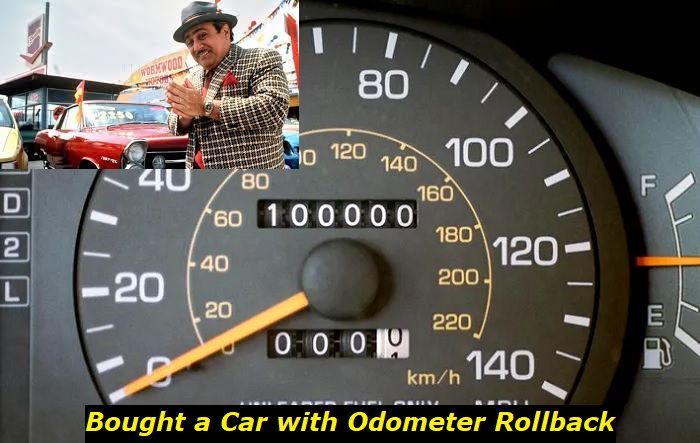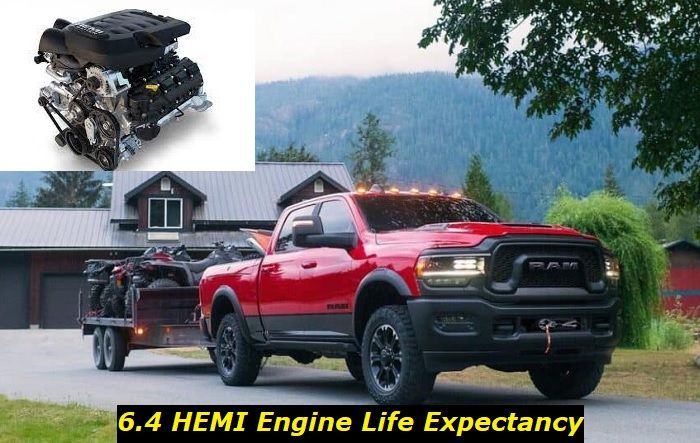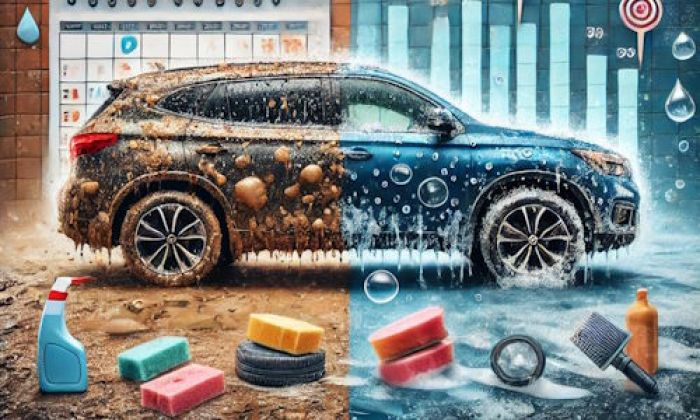The experience of a car that won't start but the lights and radio work is confusing. You think of the battery, but the headlights make you doubt. You are right. Battery issues are among the leading causes of a failed start. Other reasons are an empty gas tank, a blown ignition switch, faulty spark plugs, bad fuses, and a defective starter motor.
No-start problems highlights
- Level of urgency:High
- Can you drive?Obviously, no
- DIY inspection:Possible but complicated
- DIY repair:Mostly,impossible
- Price for repair:$250 - $850
- Common Reasons:Fuel or air supply, compression, spark, electronics
- Ways to fix:Check each system that may cause no-start, check electronics

Why Your Jeep Won't Start but the Radio and Lights Work
Most drivers experience starting problems because of battery issues, such as running out of charge and bad terminals. Damaged components, including the ignition coil, fuses, spark plugs, and starter motor, also cause a poor start. However, the problem with your Jeep could be simpler than the mechanical issues. Let us talk about each possible cause in depth.
1) You Are Out of Fuel
Lack of fuel is the last thing you think of when your Jeep won't start. However, the problem may be that simple. You rely on the fuel gauge for warnings when running out of fuel. The gauge can give incorrect readings because of electrical malfunctions.
Some old car models require a dipstick to check the fuel level. Rule the fuel issue out before checking other probable causes. Top up the gas tank and restart your car.
2) Battery Issues
The functional radio and lights may cause you to rule out battery issues, which is wrong. The functions require about 30amps of power to run. A dying battery can supply such power but fail to generate enough power to start the engine.
Starting the car requires ten times more charge than turning on the lights and radio. Some cars have a dedicated battery for starting the engine and another for powering the electronics. One battery, in this case, is dead or low on charge.
You can check the battery's functionality with a multimeter. The red probe connects to the positive battery terminal, while the black goes to the negative terminal. The multimeter will give you a reading immediately.
A reading below 12.6v means that your battery needs charging or replacement. An 11.9V reading means the battery is completely discharged.
3) Corrosion or Dirt on Battery Terminals
Inspect the terminals if the multimeter reading shows that the charging level is sufficient to start the car. Corroded or dirty terminals interrupt the power flow from the battery to the electrical system.
The power flowing through faulty or corroded terminals may be enough to turn the radio and lights on. However, clean and functional terminals are necessary to supply enough power to start your jeep.
A physical inspection will reveal issues with damaged or contaminated terminals. You can clean corroded terminals or replace them if the damage is severe.
4) Defective Spark Plugs
Spark plugs can cause starting problems if you ignore obvious signs. Spark plugs ignite the fuel in the piston. You will only experience starting problems if multiple spark plugs fail simultaneously. Luckily, you can fix failing spark plugs before the car fails to start.
A misfiring engine is a sign of a bad spark plug. If you ignore the sign and continue driving your Jeep, other spark plugs will also fail. Hence, you must immediately replace a bad spark plug when the engine misfires.
If you suspect defective spark plugs, use a multimeter to test their functionality. Replace all spark plugs that prove faulty.
5) A Bad Starter Motor
The starter motor is necessary to start the engine. The battery powers the motor, which provides torque when you turn on the engine. A bad starter motor aborts the process, even if the battery is fully charged.
A failing starter motor makes grinding noises when you turn the ignition key. The engine should run independently after a successful start. However, a bad starter motor remains on when the engine is running.
Another sign of a faulty starter motor is a whining sound after turning the key. The motor has pinion gear, which produces the sound when worn out. The worn-out pinion gear spins freely instead of turning the engine's flywheel, a situation called freewheeling.
An easy way to diagnose a failing starter motor is to listen to the sounds from the engine compartment. Open the hood and turn the ignition key or ask someone to do it while you listen for grinding or whining noises.
A single clicking noise indicates a bad solenoid. Use a voltmeter to confirm if the solenoid works. Your mechanic will help you to replace the broken part of the starter motor.
6) Blown Ignition Switch and Fuses
The electrical systems in Jeeps consist of multiple fuses. The fuses blow when damaged, overloaded, or old. When you turn on the ignition key, a blown fuse causes a short circuit. Use your car manual to locate and inspect the fuse box.
You may identify corroded or defective wires as you inspect the fuse box. However, professional help is advisable to find and replace blown fuses.
The ignition switch is located in the key housing. Turning the ignition key or remote fob activates the ignition switch. A faulty ignition switch breaks the circuit, affecting the electrical power supply.
7) Faulty Ignition Coil
A bad ignition coil causes your Jeep to fail to start. A spark test can help you to determine if the ignition coil is generating enough power to produce a strong spark. Ensure you buy the right tester, especially if your car model has a coil-on-plug system.
8) Immobilizer Issues
A car immobilizer protects your car from theft. The car engine will not start if the right transponder or key is missing. A defective car immobilizer may fail to register the smart key, causing starting problems.
When the immobilizer fails, the car system sends a warning light on your dashboard. An auto electrician can help you interpret the warning light and fix the underlying immobilizer problem.
9) Bad Fuel Pump
The fuel pump pushes fuel to the engine through the fuel injectors. Any defects in the fuel lines or injectors will interrupt the fuel supply. You can test the fuel pump's functionality by turning the Jeep to the ACC position.
The fuel pump makes a humming sound from the back of the car. Check for fuel leaks under the car if you hear the fuel pump working. The fuel may also be frozen in the fuel tank. Leaks and frozen fuel starve the engine of the fuel needed to start and run.
You can also diagnose the fuel injectors for defects by checking the fuel pressure. The standard pressure that pushes enough fuel to the engine is between 40 and 45 psi. A reading below this range indicates a problem with fuel injectors.
How to Fix a Jeep That Fails to Start
The knowledge of the reasons a car fails to start will help you in fixing the problems. The best place to start is with the battery. Electrical components may malfunction because of battery issues. The next step is testing the components involved in starting an engine for defects.
- Solve Battery Problems
Use a multimeter to check the battery's charge level. Charge the battery or jumpstart it if it is already dead. A replacement is necessary for a damaged battery. A new battery costs $60 to $250. However, the actual cost will depend on the model and labor costs.
Clean or replace corroded terminals while checking the battery. Broken or damaged terminals and wires require a replacement.
- Replace Faulty Parts
Check the related parts for defects if the starting problem persists after solving all battery issues. Inspect and test the spark plugs, ignition coil, starter, fuel pump, ignition switch, and fuses. You must test each part at a time if you cannot find any leading signs.
Testing the parts at home hastens the process of getting your Jeep on the road. An experienced Jeep mechanic can help you to replace faulty parts easily. In addition, seeking professional advice ensures you buy quality spare parts with long service life.
- Service and Maintenance
Be consistent with car service and maintenance after replacing the faulty components. Regular visits to a qualified mechanic will save you from unexpected starting problems and repair costs. Check into a car garage when signs or warning lights of a failing engine appear.
Your mechanic handles the technical parts of car maintenance. However, you can fix simple issues at home, such as cleaning and replacing battery terminals. You can also prevent your battery from discharging when your Jeep is parked.
Conclusion
Your Jeep won't start with a dead battery or an empty gas tank. A dying battery may power the headlights and radio but fail to start the engine. Filling an empty gas tank and fixing any battery issues should get you moving. However, failed components may also lead to starting issues even with a full fuel tank and fully charged battery.
The parts to check, replace or repair include the ignition coil, starter motor, fuel pump, ignition switch, and fuses. Professional help is advisable if you cannot test and replace these components with the car manual.
About the authors
The CarAraC research team is composed of seasoned auto mechanics and automotive industry professionals, including individuals with advanced degrees and certifications in their field. Our team members boast prestigious credentials, reflecting their extensive knowledge and skills. These qualifications include: IMI: Institute of the Motor Industry, ASE-Certified Master Automobile Technicians; Coventry University, Graduate of MA in Automotive Journalism; Politecnico di Torino, Italy, MS Automotive Engineering; Ss. Cyril and Methodius University in Skopje, Mechanical University in Skopje; TOC Automotive College; DHA Suffa University, Department of Mechanical Engineering






Add comment